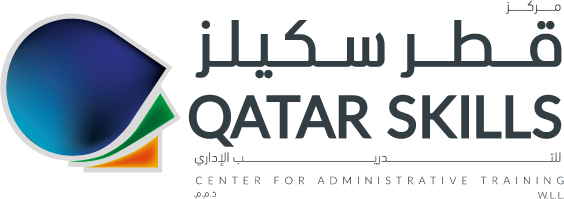array (
'course-city' =>
array (
0 => 48,
177 => 90,
226 => 77,
336 => 106,
371 => 107,
445 => 72,
486 => 108,
528 => 109,
551 => 110,
582 => 111,
604 => 71,
639 => 112,
673 => 78,
708 => 113,
798 => 70,
818 => 114,
875 => 115,
877 => 127,
910 => 116,
1054 => 117,
1226 => 118,
1324 => 91,
1402 => 119,
1492 => 120,
),
'course-language' =>
array (
0 => 49,
706 => 126,
),
'types' =>
array (
0 => 81,
),
'course-category' =>
array (
0 => 67,
127 => 64,
128 => 65,
129 => 58,
130 => 59,
131 => 66,
132 => 125,
133 => 60,
134 => 61,
135 => 123,
136 => 46,
137 => 51,
138 => 62,
139 => 85,
140 => 83,
141 => 76,
144 => 99,
145 => 57,
146 => 63,
149 => 97,
152 => 98,
157 => 124,
158 => 103,
159 => 104,
160 => 105,
161 => 55,
162 => 75,
163 => 53,
164 => 56,
172 => 100,
174 => 101,
178 => 122,
191 => 121,
240 => 102,
),
'course-type' =>
array (
0 => 73,
),
)Diesel Engine Generator: Operation, Maintenance & Troubleshooting
Course Overview:
Diesel Engine is one of the most Internal Combustion Engines, which is used for many purposes. It can be utilized as a prime mover for any Rotating Equipment Machinery such as Pumps, Compressors, and Fans, in addition to its use for all Power Plants as Black Start Units. This course is intended for FIVE days to provide an overview of the most important
components of a Diesel Engine and the function of each, as well as auxiliary systems such as lubrication system, cooling system, and different methods used for the start-up of Diesel Engine. Also, this course will explain how to utilize the Diesel Engine as a prime mover of rotating machinery or to Generate Power. Moreover, will cover all aspects of a modern Diesel Engine and associated systems.
Descriptions of the Electrical systems associated with a Diesel Engine are then covered in detail including Generator Operations, Generator components, excitation systems, and voltage regulation. In addition, we will discuss how the steps in Operating and Maintenance Programs differ for these engines; in the end, we will discuss all Problems and Troubleshooting and how to overcome them through Logical Solutions with various examples of signatures to achieve an understanding the operation.
Course Objective:
After completing this course, participants will be able to:
- Consolidate and update understanding of the Diesel Engine Components and Auxiliaries.
- Understand Diesel Engine construction and rating for Diesel Generators
- Able to maintain the engine in a safer way and will make a more effective contribution to the operation of machinery.
- Learn the basics of Engine operating value evaluation and maintenance planning.
- The special focus is on the economic aspects of Engine Operation and Utilization.
- Understand the Diesel Generator vibration problems and vibration stress and how to reduce it.
- Understand the modern Diesel Engine Electronic Management System.
- Troubleshooting of Diesel Engine Generator & Its Auxiliaries System.
Who Should Attend?
This is course is designed for all employees involved in the Operations and Maintenance of Diesel Engine Generator. It would be of specific benefit to those who are involved in the use of DEG as Emergency Generators which would include most Power Stations, Oil Platforms, and Petrochemical Plants.
Course Content
Module (01) Overview of Diesel Engine
1.1 Introduction
1.2 Diesel as Prime Movers
1.3 Spark Ignition Engine
1.4 Compression Ignition Cycle
1.5 Diesel Engine & Gasoline Engine
1.5.1 4 Strokes
1.5.2 4-Cycle Engine
1.6 Air / Fuel Ratio
Module (02) Diesel Engines Components
2.1 Cylinders
2.2 Pistons
2.3 Crankshaft
2.4 Cylinder Liners
2.5 Connecting Rods
2.6 Cylinder Heads and Valves
2.7 Piston Rings
2.8 Cam Shaft
2.9 Flywheel
2.10 Governor
Module (03) Engines Related Systems
3.1 The Fuel Injector
3.2 Supercharging
3.3 Turbochargers
3.4 Crankcase Ventilation
3.5 Exhaust & Induction System
Module (04) Diesel Engine Auxiliary Systems
4.1 Air Filtration System
4.2 Fuel Storage and Supply System
4.3 Air Supply System
4.4 Exhaust System
4.5 Water Cooling System
4.6 Starting System
4.7 Lubrication System
4.8 Power Governing System
Module (05) Combustion Process
5.1 Ignition System
5.2 Torque vs. Seat Load
5.3 Ignition Voltage vs. Timing
Module (06) Power Generation
6.1 Introduction to Alternating Current (AC)
6.2 Producing Magnetism with Electricity
6.3 AC Generator
6.4 Power Factor
6.5 Synchronizing and Operating Generator
6.6 Automatic Voltage Regulator
6.7 Protection and Interlock System
Module (07) Diesel Engine /Generator Operation
7.1 Pre-checks for Operation
7.2 Standard Operation Prosecutes (SOP)
7.3 Normal Operation Observation & Monitoring
7.4 Shutdown Procedures
7.5 Abnormal Operation Conditions
7.6 Standard Isolation Procedures
Module (08) Common Problems for Diesel Engine
8.1 Cracked Heads
8.2 Scaled Exhaust
8.3 Fouling Deposits
8.4 Corrosion
8.5 Cavitation’s
8.6 Splash Lubrication
8.7 Abnormal Sound / Noise
8.8 Vibration
8.9 Overheating
8.10 Overloading
Module (09) Diesel Engine / Generator Maintenance
9.1 Reactive Maintenance
9.2 Preventive Maintenance Program
9.3 Schedule Overhauls
9.4 Predictive Maintenance
9.5 Reliability-Centered Maintenance
9.6 How to initiate RCM?
9.7 Maintenance Reporting
Module (10) Troubleshooting of Diesel Engine
10.1 Developing a Logical Systematic approach
10.2 Common Diesel Engine Problem
10.3 Diesel Generator Faults
10.4 Fault Tree Analysis
10.5 Troubleshooting Matrix



